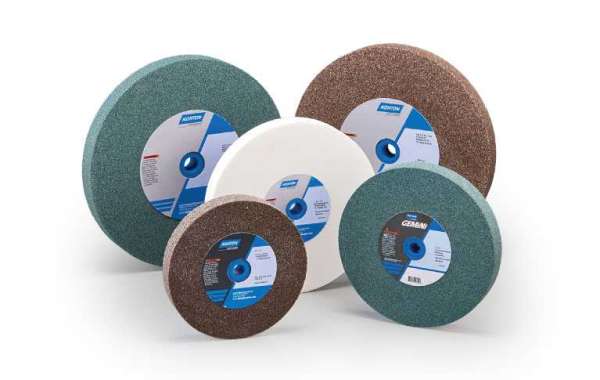Grinding wheels are a vital tool in many industrial and manufacturing applications. They are used for cutting, grinding, and finishing materials such as metal, wood, and plastic. However, not all grinding wheels are created equal. The type of abrasive used in a grinding wheel can greatly affect its performance and suitability for specific applications. In this blog post, we will explore what grinding wheel abrasives are, how they work, and why they matter.
What are Grinding Wheel Abrasives?
Grinding wheel abrasives are the materials used to make up the cutting surface of a grinding wheel. They come in a variety of forms, including bonded abrasives, coated abrasives, and superabrasives. Bonded abrasives are the most common and are made by mixing abrasive grains with a bonding agent such as clay, resin, or rubber. Coated abrasives, on the other hand, are made by coating abrasive grains onto a backing material such as paper, cloth, or film. Superabrasives are a special type of abrasive that are made from synthetic diamonds or cubic boron nitride.
How do Grinding Wheel Abrasives Work?
Grinding wheel abrasives work by rubbing against the material being ground, which causes the abrasive grains to break off and create new cutting edges. The size, shape, and composition of the abrasive grains all play a role in how the grinding wheel performs. For example, a larger abrasive grain will cut more aggressively but will leave a rougher surface finish. In contrast, a smaller abrasive grain will produce a finer finish but will cut more slowly. The composition of the abrasive grains can also affect the grinding wheel's performance. For instance, aluminum oxide is a common abrasive used for grinding steel, while silicon carbide is better suited for grinding softer materials like aluminum or brass.
Why do Grinding Wheel Abrasives Matter?
Choosing the right abrasive for a grinding wheel is crucial for achieving the desired results. Using the wrong abrasive can result in poor performance, increased wear on the grinding wheel, and even damage to the material being ground. Factors such as the material being ground, the desired finish, and the level of precision required all need to be considered when selecting an abrasive. In addition, the operating conditions such as the speed and pressure of the grinding operation, also affect the selection of abrasive.
In conclusion, grinding wheel abrasives play a critical role in the performance of grinding wheels. By understanding what they are, how they work, and why they matter, you can make informed decisions when selecting the right grinding wheel for your application. So, always take the time to carefully consider your options when choosing the right abrasive for your grinding needs.








